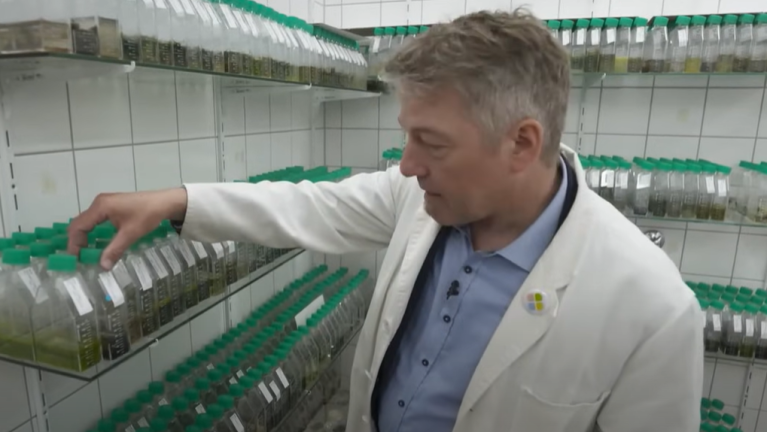Collaborative research thousands of kilometres apart
From algae which are making antibiotics, to help for people with autism, scientists in Germany and New Zealand are working together on new ideas.
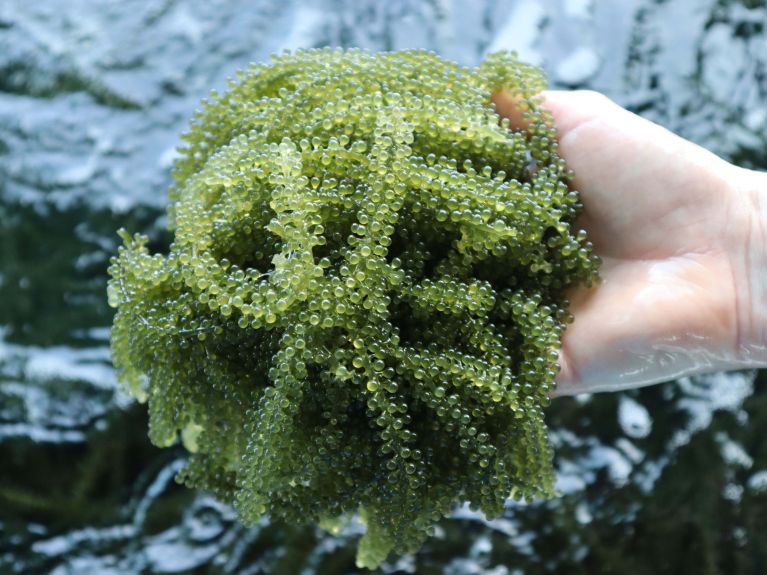
Algae holds huge reserves of potential which people are only beginning to unlock, from providing fuels, functioning as biocatalysts, and producing oxygen. A project between the Leibniz Centre for Tropical Marine Research (ZMT) in Bremen and the Leigh Marine Laboratory (LML) at the University of Auckland are now exploring a new aspect of algae. The project, which began in May 2024, is investigating “secondary metabolites” produced by algae. These pigments and antibiotics could be of interest in pharmacological or food science applications, explains Project Head Dr Andreas Kunzmann from the ZMT.
Many benefits from intercontinental partnerships
The German-NZ research into biotechnology applications of secondary products of algae is one of the most recent research projects funded by the German Academic Exchange Service (DAAD) as part of its programme to support project-related staff exchanges.
For Andreas Kunzmann, what makes the cooperation between Germany and New Zealand worthwhile is that both countries lie on similar latitudes and in similar temperate zones. He explains that this makes latitudinal comparisons possible. “That means that while the species of algae may be different, we expect them to have similar characteristics,” he says.
Kunzmann has been working on research with colleagues in New Zealand for over 15 years, and he understands the practical difficulties of projects of this kind. “Time differences and distances are tricky,” he says, andexplains that one short visit a year (which the DAAD funding provides for his current project) is not enough to get all the work done. Nevertheless, Kunzmann sees so much value in the partnership that he is happy to continue pursuing them. “That’s the only way to draw conclusions at a global level,” he says.
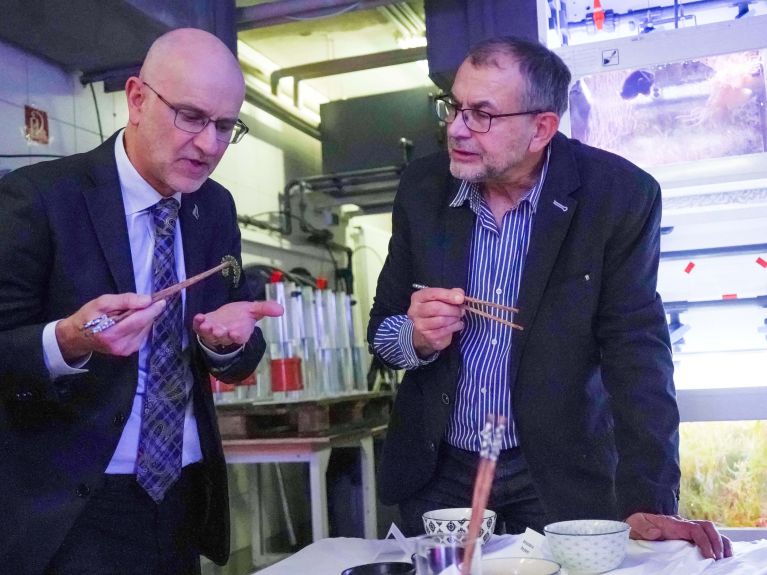
RWTH Aachen University is about four hours by car from Bremen. There, Philipp Demling and his colleagues at the Institute of Applied Microbiology are also working in partnership with New Zealand academics. While the RWTH team is studying how yeast fungi can produce polyphosphates, the New Zealand researchers are looking at microalgae.
Dieses YouTube-Video kann in einem neuen Tab abgespielt werden
YouTube öffnenThird party content
We use YouTube to embed content that may collect data about your activity. Please review the details and accept the service to see this content.
Open consent formThey are working on a joint project to quantify and characterise polyphosphates from microalgae, which applies analytical methods from one organism to the other as a means of achieving a more holistic picture. The DAAD helped by funding three trips by RWTH scientists to spend several weeks at Massey University.
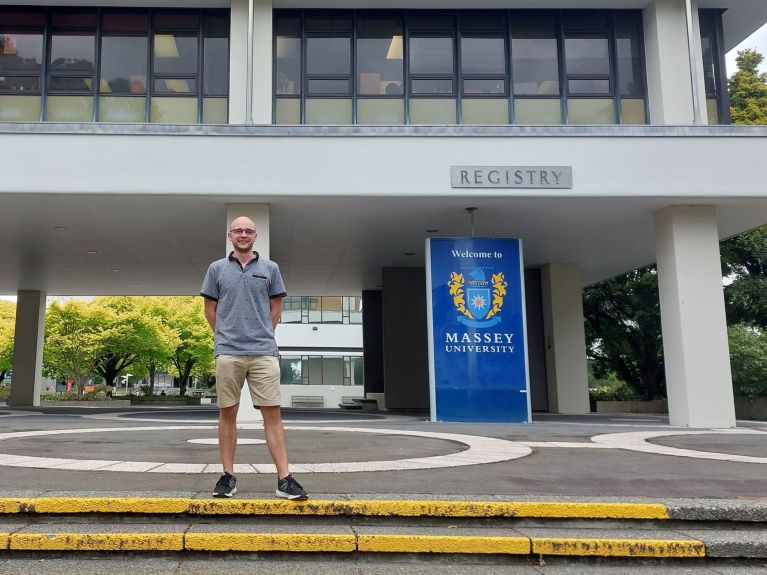
Demling relates how it was greatly enriching to work in a different country and, above all, in a different lab. He took away many new approaches, ideas and sources of inspiration. Despite the twelve hour time difference, even discussions in online meetings have worked well. “We either got up a bit earlier or stayed up later,” Demling says.
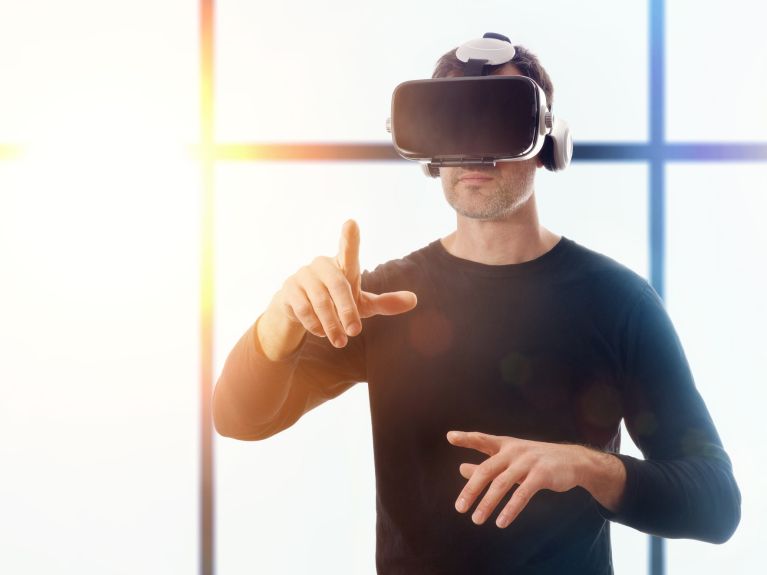
A research project between Furtwangen University and the University of Canterbury in New Zealand is putting the human psyche is under the microscope. The team are working on AI-driven emotion recognition training. Project Leader Geoffrey Chase at the University of Canterbury explains that rates of high-functioning autistic spectrum disorder are increasing, particularly among men. Those affected can find it hard to recognise emotions and have difficulties with communication and interaction, he says. The potential consequences of so-called “social blindness” include exclusion, mental health problems, reduced employment, a propensity to addiction, and suicidal ideation. Chase explains that emotional recognition and scenario-based training with trained therapists can be “very successful, but places on treatment programmes are scarce and expensive.”In response, the German-New Zealand team is testing various ways of helping as many people with autism to access support services.
Their aim is to use artificial intelligence and virtual reality to represent realistic scenarios, which provides stress-free training in different forms of interaction. Instead of real people, avatars could provide someone to talk to. “The study is helping create a software platform which many more people will be able to access for themselves or their children,” Chase explains.
He says the medium to long-term goal is to use the scenarios and methods they develop as a “therapeutic add-on” to video games. The aim is for people affected by autism to be able to complete game-like tasks on a computer and train their skills. This covers various levels of difficulty, from communicating in a supermarket to hunting for butterflies in a swamp.
PPP
These three letters stand for the DAAD’s “Programm des Projektbezogenen Personenaustausch” programme. Through the programme, whose title means “Programme for Project-Related Individual Exchanges”, the DAAD seeks to promote academic relationships between universities in Germany and institutions in partner countries. Research projects are expected to give early-career academics and scientists, such as PhD students and post-docs, the chance to gain skills and qualifications in an international academic environment. Through the programme, an early-career academic could spend time at a partner institution abroad, for example. The PPP was first set up with New Zealand in 2022.
